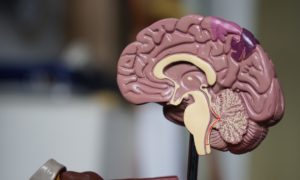Last week, we shared the symptoms of IBS. This week, we are continuing this series. Today, we are sharing more about IBS and diving into IBD as well.
In review:
Last time readers popped by, they read about the common symptoms caused by IBS. Bloating, gas, cramping, diarrhea, and constipation are the most reported symptoms of IBS. It is important to see a doctor when you experience weight loss due to diarrhea.
This can be a sign of malnutrition. Bloating is also a sign of malnutrition. When patients experience weightless while simultaneously experiencing weight loss, they are likely lacking nutrients. It is time to call a doctor when a patient has diarrhea at night or rectal bleeding.
Iron deficiency anemia may be caused by IBS and should be discussed with a gastroenterologist. Unexplained vomiting is not common but it is a sign you need to go to the doctor as soon as possible. Difficulty swallowing and persistent pain that is not received by passing a bowel movement or gas are two more signs that a person needs to be seen by a doctor quickly.
Causes of IBS:
 There are five causes of irritable bowel syndrome we are going to share today. The walls of the intestines are lined with layers of muscle. They contract as they move food through the digestive tract.
There are five causes of irritable bowel syndrome we are going to share today. The walls of the intestines are lined with layers of muscle. They contract as they move food through the digestive tract.
Contractions that are stronger and last longer than usual may cause gas, bloating, and diarrhea. Weak intestinal contractions can slow food’s travel through the intestines and lead to hard, dry stool. These weak intestinal contractions can cause constipation.
Abnormalities in the nerves inside the digestive system can cause a person to experience greater than normal discomfort when the abdomen stretches from gas or stool. Uncoordinated signals between the brain and the intestines can cause the body to overreact to changes which usually occur in the digestive process. This can leave a person in pain, with diarrhea, or constipated.
Some people with IBS have an increased number of immune-system cells in the digestive tract. This unusual immune system response causes inflammation. Often times it is associated with pain and diarrhea.
Irritable bowel syndrome may develop after a severe bout of diarrhea caused by bacteria or a virus, medically referred to as gastroenteritis. IBS can also be associated with a surplus of bacteria in the intestines. The is called bacterial overgrowth.
Microflora are the good bacteria which reside in the intestines. They play a key role in health. Research indicates that microflora in people with IBS may differ from microflora in people without IBS.
Making an appointment during COVID-19:
 Patients may still make appointments during the pandemic. All our staff asks of patients is honesty when they have been in contact with someone that has tested positive. If a patient has been in contact with an infected friend or family member, they will need to reschedule.
Patients may still make appointments during the pandemic. All our staff asks of patients is honesty when they have been in contact with someone that has tested positive. If a patient has been in contact with an infected friend or family member, they will need to reschedule.
Telehealth appointments may be available for issues that cannot be put off any longer. Call today or make an appointment on our website.
Staff Writer
